Garrett’s Beam Reach Experience
This is my first blog entry so I am going to give an overview of my experiences and feelings for the first part of the fall beam reach program. I have had limited internet access while on the boat for the last week so this is my first chance to update everyone. I started the first week by getting to know the other students in the program, as well as getting use to our living situation while we are on land at the Friday Harbor Laboratories. One of the most interesting aspects from the beginning was discovering where each person is from and hearing stories about their previous experiences. Cat is the only student from the UK and a different country, and that has led to many funny conversations and explanations about differences in our cultures and words. We started to become a proper group by taking a series of walks along the trail system near the labs which lead to the shoreline of San Juan Island. While we were out there three of the girls in our group had their first experiences with marine wildlife in Northwest Washington, and this resulted in hundreds of pictures; mostly of tiny seal heads just above the water. The wildlife in the area is not limited to the marine environment, and we see deer and hawks on a daily basis; we were even lucky enough to see a fox (see picture). All these animals are associated with a 200 acre biological reserve that is adjacent to the labs, and that has given me a great place to go for a runs and walks.
The academic side of the program has been equally stimulating, and our professors have provided us with a crash course in acoustics, which includes how to use a series of hydrophones to record sounds made by killer whales for our research. In addition to our daily classes we were lucky enough to have outside guests come give lectures to our class about their personal research and experiences. On a couple of the nights we rowed into the town of Friday Harbor and enjoyed lectures from an octopus expert from the Seattle Aquarium, and Captain Paul Watson from the Sea Shepards at the local whale museum. Overall, the first three weeks on land were a great start for getting oriented to this type of program and living arrangement. However, now that we are on the boat everything has shifted again.
Each day on the boat has a rotation for various jobs which include cleaning up, and preparing breakfast, lunch, and dinner. I think the quality of the meals has surprised everyone, and each night has had a different delicious meal. We are lucky enough to have access to the 42 foot Gato Verde with Captain Todd Shuster. The Gato Verde is a 42 foot catamaran sail boat that is powered by a biodiesel generator, and an electric motor.  The electric motor produces extremely low levels of sound which allows us to take very accurate measurements of the whales while we are actively following them. Captain Todd has also been very helpful and effective at teaching everyone some essential knots, and techniques used for sailing, navigation, and operating the boat in a safely. As part of the course on sustainability we track our usage of electricity and water daily, and this has helped everyone realize how much each person uses in terms of resources on a daily basis. This is important information because the boat is a closed system with finite amounts of fresh water, food, fuel, and space for various forms of waste. Also we try to consume foods on lower trophic levels by staying with a vegetarian diet in order to further reduce our impact on the environment.
On a more exciting note we have encountered numerous marine species in our first week including Minke Whales, Harbor Seals, Stellar Sealions, River Otters, Tufted Puffins, Porpoises, and last but not least killer whales. We saw our first killer whales early in the week which resulted in a scramble to get some initial recordings which turned out to be amazing. It was a little difficult to follow them for as long as we would have liked due to heavy fog, however, we have had some very nice sunsets during dinner time for many of the days this week. On Wednesday we learned a valuable lesson when some of our batteries ran out and we lost some recordings for one of our hydrophones. Everyone on the boat has become more comfortable with equipment as the week progressed, and tonight is our first night on land in about a week. Everyone is busy taking showers and using the internet before we leave again tomorrow for another week of studying the whales. I am sure I will have many new and exciting stories by the end of next week to blog about, and I will post them as soon as I have a chance thanks for reading.

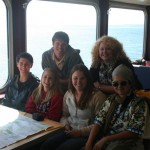
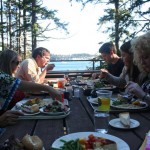
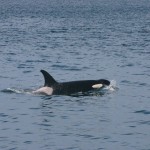
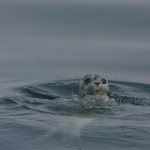
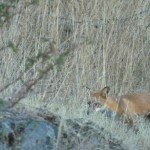
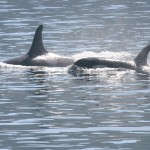


 Twitter
Twitter LinkedIn
LinkedIn Facebook
Facebook